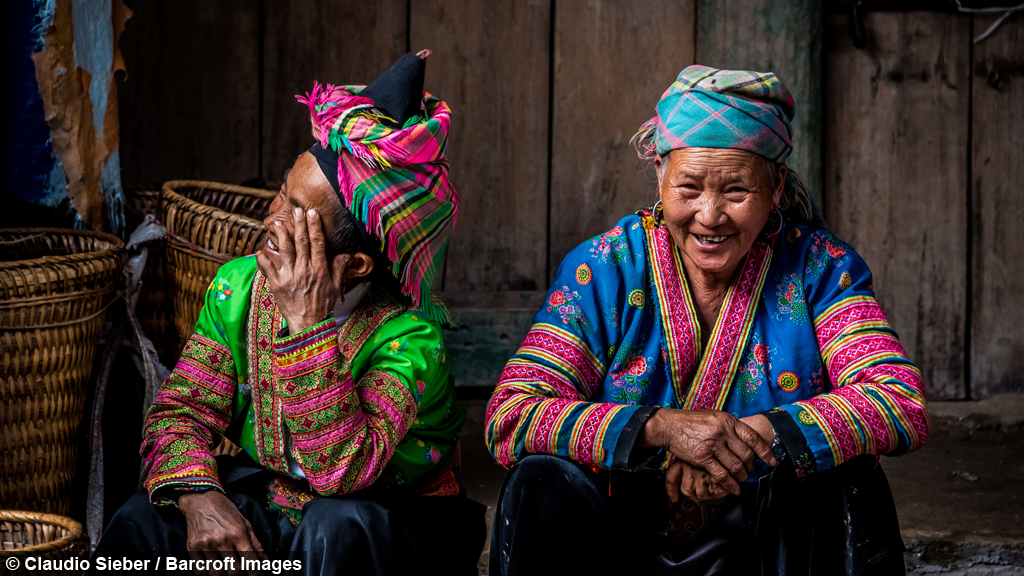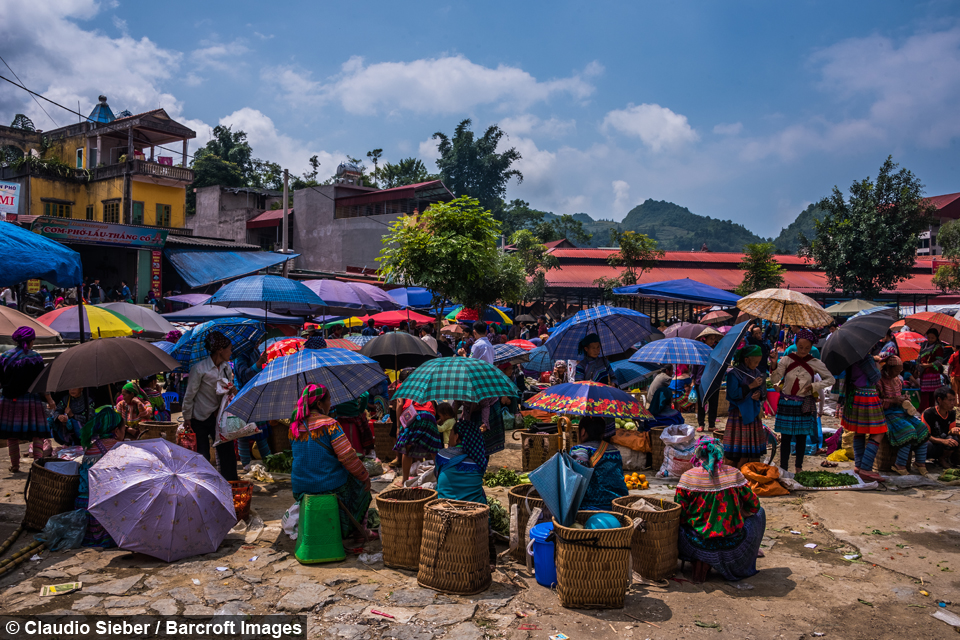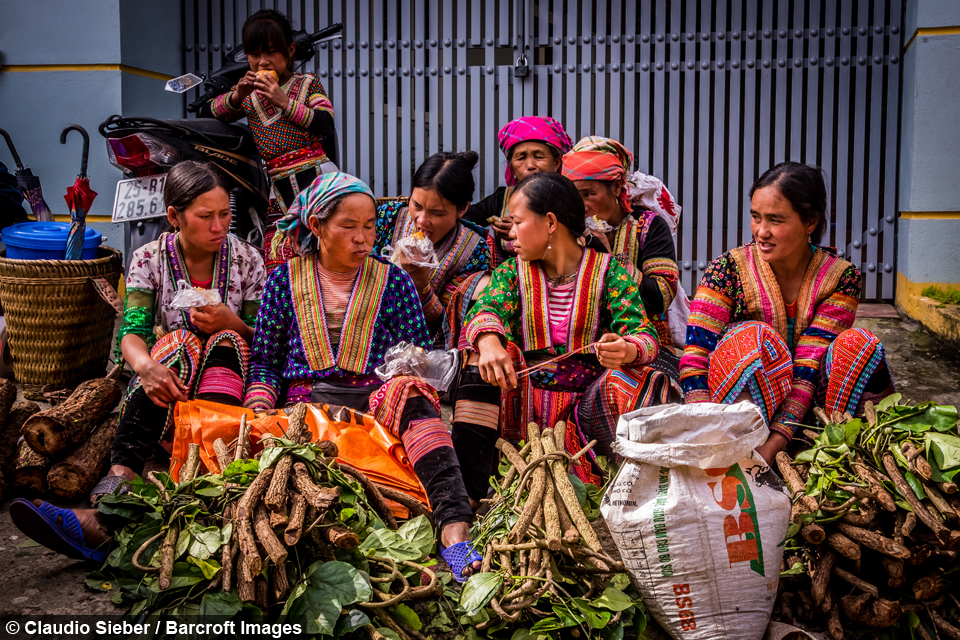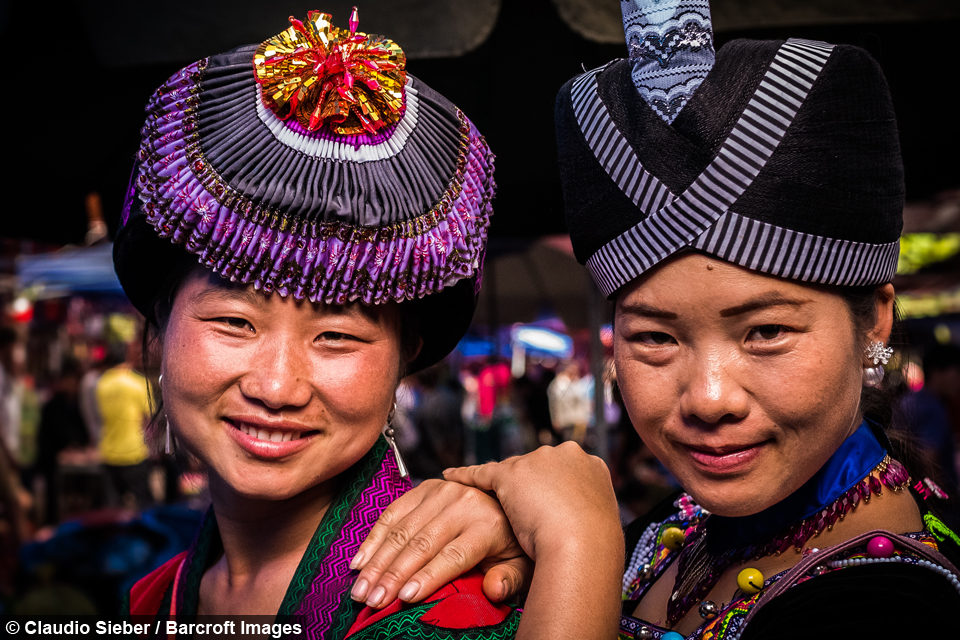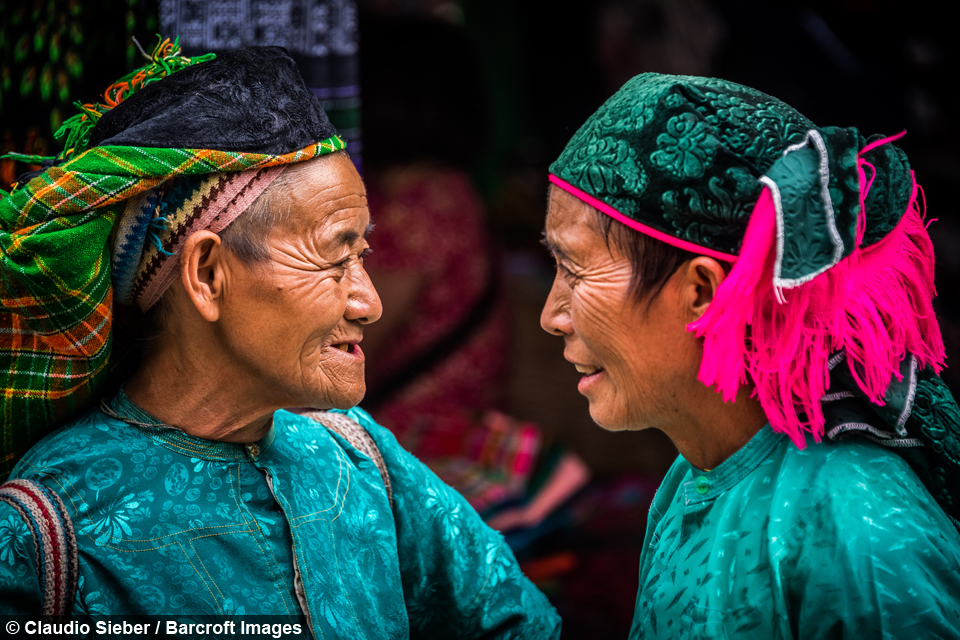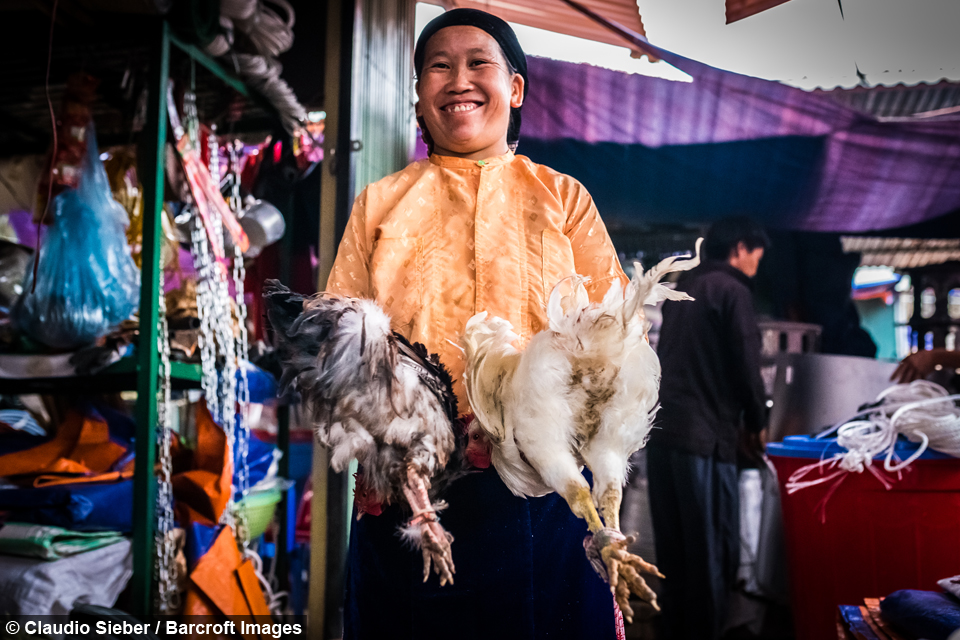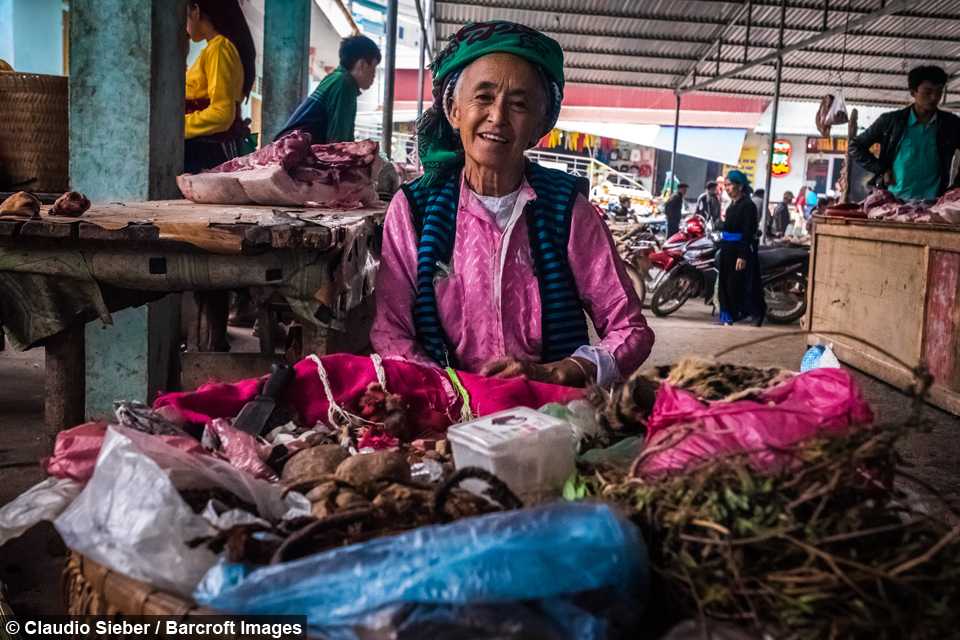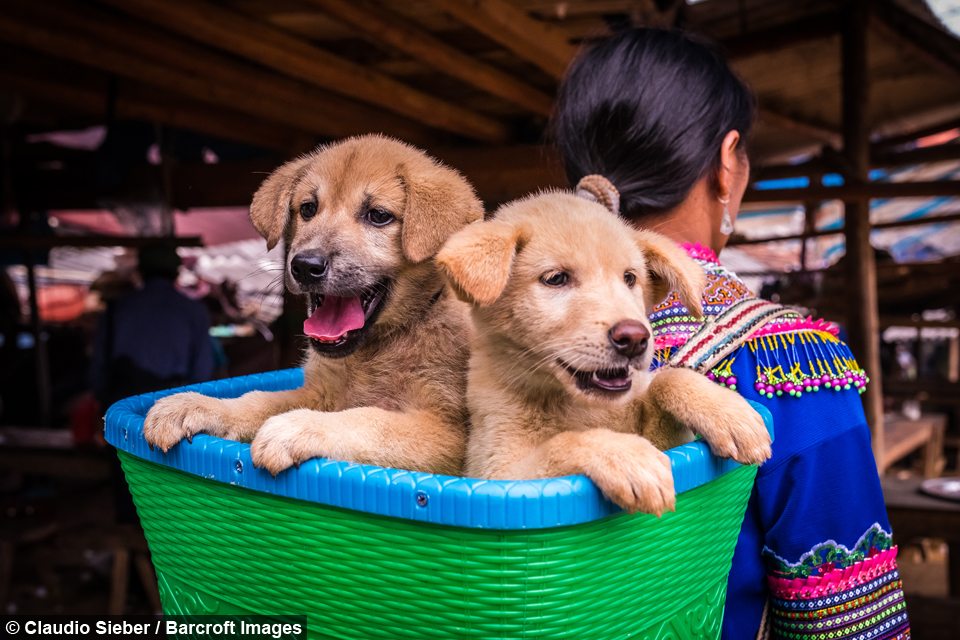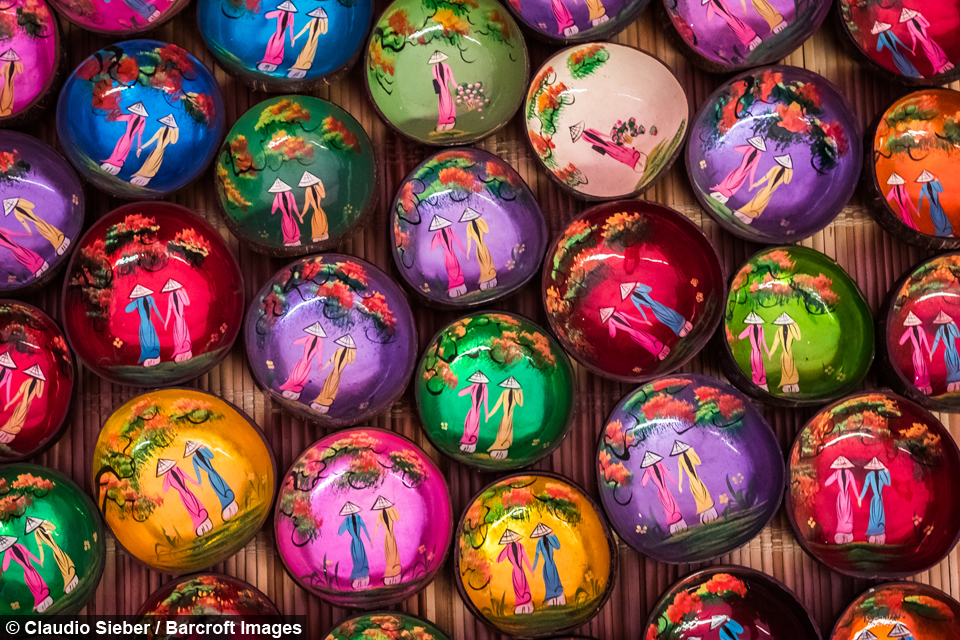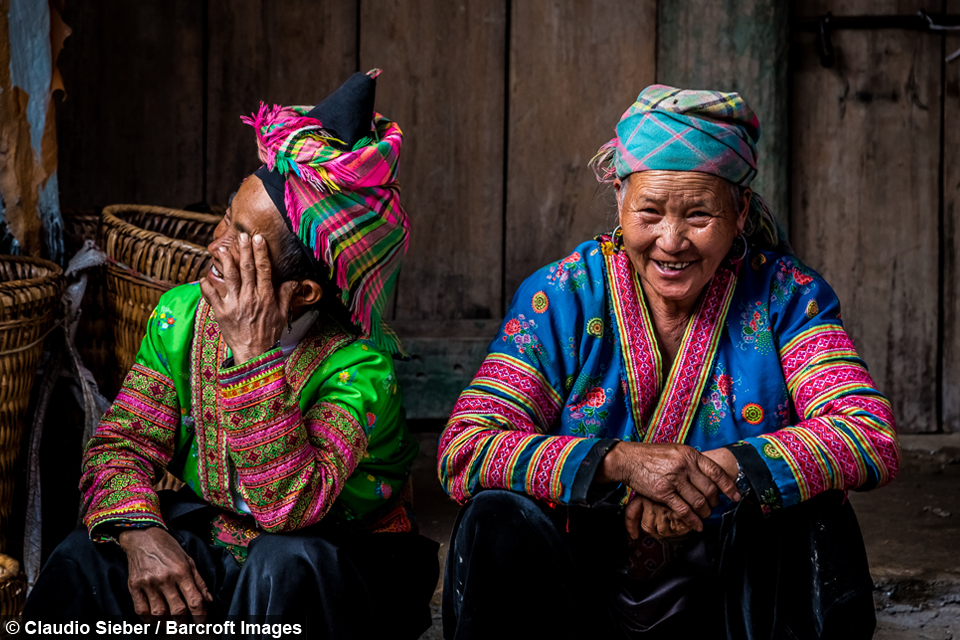Rural Retreat: Explore the diverse markets of Northern Vietnam's highlands
By Hannah Stevens @Hannahshewans
Scroll down for the full story
Nomadic photographer Claudio Sieber, 34, ventured across Vietnam’s highlands to explore the culturally diverse markets of Northern Vietnam.
Claudio visited the highlands of Vietnam to avoid areas gradually becoming over populated with tourists and locals who have begun to ask for money in exchange for photos.
Sieber said: “I always ask for permission if I do portraiture. Some disagree, I accept and also respect this reaction. I get better emotions from those real life models willing to be photographed.
“But street photography isn’t just about people facing the camera. I would never pay money for a photo.
“A good example of unsustainable behaviour is the over promoted area of Sa Pa where ethnic minorities already ask hobby photographers for their ‘paid business smile’.
“Even worse, children often chase tourism money instead of going to school.”
Sieber visited the markets of Sìn Hô, in the rural district of Lai Châu Province, the Ha Giang Province and the Bac Hà District - capital of the region of the Flower Hmong, one of the six groups who make up the Hmong people.
The Hmong people are an ethnic group who originate in the mountainous regions of China, Vietnam, Laos and Thailand, they are made up of several sub-groups including Flower Hmong, White Hmong and Black Hmong.
Visiting the lesser known markets of the North gave Claudio the ideal backdrop to explore the stunning and diverse cultures of Vietnam’s vast 89 million population.
Vibrant stalls offered swathes of intricately woven cloth, rice wine, alternative medicine, animals - both dead and alive - and home grown food from across each region.
The photographer said: “A row of barbers on the sidewalk take care of their customers while shoppers flock around in search of new trends, traditional tribal clothes or just their weekly grocery shop.
“There are cows, puppies or birds changing ownership in the markets. Some market ladies reminded me of witch doctors offering their alternative medicine such as indefinable roots, dried mushrooms, wood bark or certain parts of fluffy animals.
“Most of those markets have one thing in common, teenagers dressing up to attract the opposite gender, since the size of small communes and distances in between makes it hard for them to find the ‘right one’.
“Nevertheless in most cases the parents choose the ‘right one’.”
The travelling freelance photographer, who left Switzerland three years ago to explore the world through his camera lens, was fascinated by the taster he got of the every day lives of Vietnam’s rural population.
Claudio said: “It’s a glimpse of ethnic life and I love the fact that it is 100 percent authentic. There is no show for tourists.
“It’s more like a weekly event for the shoppers. People do business in the early morning, then go to eat Pho together - the typical noodle soup of Vietnam - smoke the bamboo pipe and venture back home.
“Some bought a cow, some a jerrycans of rice wine, some a bunch of glimmer clothes and some might have found a new boyfriend.”
